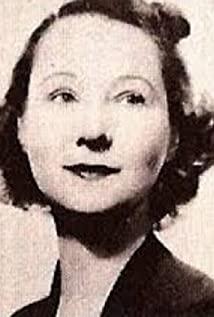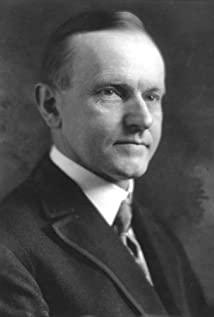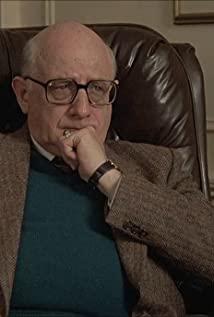In 1983, Woody Allen’s self-directed and self-acted film "The Biography of the West" (also translated as "Zerrig") is one of his highest artistic achievements so far. The film uses a pseudo-documentary method to create a fiction about The story of the "Chameleon Man": At the beginning of the 20th century, a Jew named Xili did not have his own personality. Whenever he entered a new environment and group, he would quickly reflect the characteristics of this environment. Xili can become anyone with him, such as black people, fat people, and even people with different political positions and speaking different languages, just like a chameleon, which produces a double mutation of physical and psychological.
Xili is a typical ultimate follower. Behind the absurdity inevitably implies a failed identification of self-identity. In the existentialist view, what makes a person himself depends on how he makes choices, not his body or soul. The value of a mature person's existence is precisely that he has a unique position, attitude and standard. In the movie, after receiving hypnosis, Xili explained that he chose to remain the same as others because he was "so safe" and "want to be liked". He told the psychologist that he was bullied by anti-Semites because of his Jewish status. Being excluded from the same age group, he has enough motivation to choose to find a sense of security in the assimilation mode, which is the deep psychological motivation of herd behavior. The result is an "inauthentic" self who follows the crowd based on the behavior of others, regardless of whether the choice is reasonable or not, and becomes alienated and perverted in the crowd over time. It is worth mentioning that as a "New Yorker", Woody Allen is an identity he cannot be ignored, so his performance of Jewish life in movies will always be regarded as an autobiographical brand (although he Extremely proudly does not admit it). He was born in a Jewish family in Brooklyn, New York, in 1935. Tracing back to history, Jewish Americans poured into the United States at the end of the 19th century and the beginning of the 20th century. They achieved significant upward mobility through their efforts, and gradually achieved economic and political assimilation with ordinary Americans. With years of generational change, Jewish Americans have long been no different from ordinary Americans. As far as Woody Allen’s growth experience is concerned, he is a representative of the smooth integration of Jewish intellectuals into American culture and economic structure: he entered New York University for education as a teenager (although he eventually dropped out due to personal reasons), and because of his extensive knowledge, He was able to earn a salary that was superior to most of his peers at an early age, and entered the theater and film industry as an adult, and quickly achieved considerable success. But this does not represent the true peace of a considerable number of Jews like him. "Although they occupy a prominent position in the academic, artistic, business and political circles, the Jews still feel that they are outsiders and therefore do not have a solid influence. "(Martin N. McGonagall: "Ethnic Sociology") The deep-rooted anti-Semitism in society and the long-term migration of the Jewish people living in the cracks of foreign cultures, a kind of confusion about self-identification, strong non-self, situation The foreign identity is the lifelong marginal and alienation of the Jewish people, making them the prototype of the "strangers". For Woody Allen, Jewish identity is an indelible undertone in his life and all his works, although Allen rarely actively talks about Jewish identity for his art in interviews. An important influence on his career, but almost all of his film works feature Jews who grew up in New York as the protagonist, engaged in "Jewish" occupations-such as screenwriting or show production and other cultural businesses. The characters always reveal that they are anxious. Disorders of behavior caused by stress and tension. For example, in "Anne Hall", the neurotic person who sounds "Did you eat?" as "Jew eat?" Those who are familiar with Allen know that the protagonists in most of his works are related to each other. Even if they appear in different roles in different movies, they are telling the same fate over and over again. Only when they are put together as a comparison. The ultimate meaning is perhaps to reveal the absurd dilemma of the director himself? Woody Allen’s “foreigner” complex is generally an instinctive creative motive like the “collective unconscious” in Jung’s theory. Even though the Jewish American community today is in the process of successful assimilation, Jewish cultural factors have The structural effects of Alan’s emotions and psychology had already occurred before he was born, and it was destined.
Before Xili was finally rescued, he appeared in a Hitler rally in military uniform, borrowing Allen’s comment in the movie as Saul Bellow: "There is something in him, that is Desire is submerged in the masses, longing for obscurity, and fascism provides such an opportunity for Xi Li." Being different sometimes means being excluded from order. Totalitarianism uses the individual’s desire to integrate into the collective. As Arendt puts it, it means that both private and public life are covered in an all-inclusive rule. Totalitarianism deprives the sense of existence and reality. "When you give up your true self and desire to be welcomed by others and join the group, it is very dangerous, both at the level of life and politics. The desire to be ruled by a strong personality will lead to complete obedience and surrender of will. ." (Woody Allen: "Deep in My Heart") Woody Allen admitted that this is one of the potential themes he wants to express through "The Legend of The West". "The Biography of Xili" shows a modern "stranger" experience, and it is not just for the Jews. Modern society is a highly organized collective. It is a survival strategy to eliminate heterogeneity and eliminate differences as the Jews once did. Assimilation into American mass society is a survival strategy. However, the existence of human beings is related to accident and self-selection. Therefore, facing the ubiquitous “collective” power, individuals will inevitably move towards alienation that cannot be integrated. Of course, Woody Allen is the one who refuses to be assimilated.
The director finally resolved West Li’s illness with the love of Dr. Yudola. “Love” was the ultimate salvation. “After all, it was the love of a woman, not the recognition of everyone, that changed his life in the end.” Woody ·Allen is still much more optimistic than Kafka. Obviously, "The Legend of West Lie" is a self-deprecating comedy, and Woody Allen is simply unwilling to constrain himself and sarcasm the world. All comedies are based on insecurity, otherwise you can see why the comedies of Chaplin or Stephen Chow are always permeated with deep pessimism. Allen plays with the gap between the status quo and ideals, but in fact he puts himself into the safety valve of comedy anarchy. It is an attitude of survival against alienation, and it is also his wisdom.
View more about Zelig reviews











